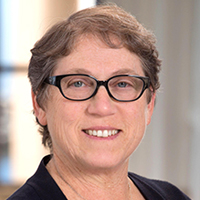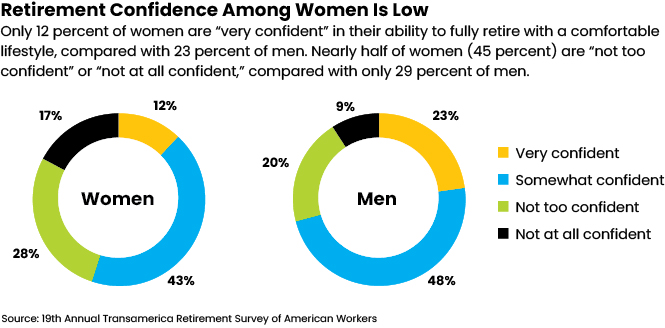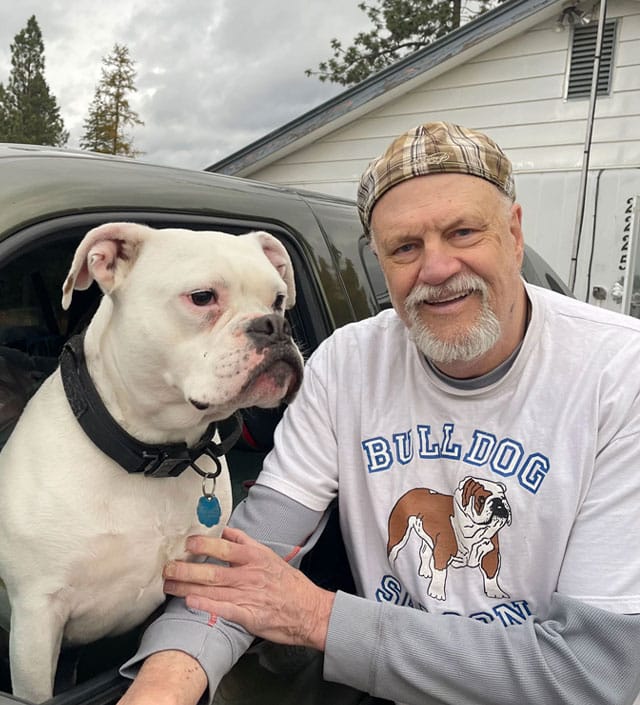
In the early 1980s when I launched my career as a Certified Financial Planner®, I didn’t plan on focusing my practice on working with women. Looking back to my evolution in this profession, I suppose it was inevitable that I would develop a women-centric practice. Growing up, I watched women in my life whom I loved make poor money decisions, and quite frankly, have poor money decisions made for them. During my career, women who sought me out and referred other women to me explained their motivation for doing so with the same refrain:
I worry that I am one bad financial decision away from outliving my savings and being homeless. I am looking to partner with you to educate myself and be sure I never become that statistic.
These women came from all walks of life, a wide variety of socio-economic conditions, and yet in my experience what lies under the cool and calm exteriors of many seemingly successful women is that overwhelming fear of becoming penniless and dependent on others.
“Many women often have told me over the years that they have a palpable internal fear everyday of becoming ‘A Bag Lady.'”
Many women often have told me over the years that they have a palpable internal fear everyday of becoming “A Bag Lady.” This is not an unusual fear among women, especially those who are approaching retirement and come from a personal history over 50 or more years in the making.

In writing this column, I reached out to several now-retired female clients I’ve known for years and posed this question: “Why did you have this underlying sense of panic around money and becoming homeless?”
The consistent answer was really one couched in a historical context of their life and times that relates very specifically to the timeline of how women’s financial opportunities have evolved during the last century.
They shared with me that in their life experience, women were infrequently in real charge of their financial lives and were not (and sadly still are often not) given the same pay or the same business opportunities as men. Whether they experienced the loss of a spouse through divorce or death, or never married, or remain married, what they share is that men were treated differently than they were—which meant they were really never really in charge of their own destiny.
Women who experienced the loss of a spouse often sacrificed what might have become a lucrative career to stay home and raise families, only to be left with permanently reduced circumstances. For women who were single their whole lives and carved out a solo financial life, doing so was financially challenging as well, as there were few paths to lucrative employment for women that didn’t result in some sort of roadblock, including the so-called glass ceiling. Many remember not being able to take out a loan, open a bank account, apply successfully for a credit card, or even change services with a local utility provider without “getting their husband on the phone.”
I’d love to say that all that has changed, but really has it? I do believe progress is being made, but consider this: Even at this most enlightened moment in history, women still have to proactively fight for positions of wealth and leadership with equal pay. We are the ones who take time off from work to give birth, we more frequently are the ones to rearrange or reduce our hours at work to raise the children, we still typically end up doing more of the chores around the house, and so it goes.
We also have very current and real memories of how our mothers and grandmothers fared financially. And while we are grateful as we stand on their shoulders, we still realize how tenuous that perch actually is.
It is in this context that I put forward the following conversation with suggestions about how to best serve women clients approaching or well ensconced in their retirement years.
Don’t assume you know her. Each woman you work with will have a unique history and lens through which she views life. She will have different perspectives, ideas, accomplishments and goals. She will have a different relationship with family and friends. After thanking her for setting up a meeting with you, start the conversation by asking this simple question: What motivated you to reach out to me? From there you can craft an organic path of questions—not answers—and learn all that you can so that you begin to develop a picture of the whole person you are meeting with and a sense of how you can help. I have also found during this first meeting to ask: If we can accomplish just one thing in our work together, more than anything else, what would you like that to be? And then from there you can ask for that next goal, and next. If you end that meeting with her sensing that you are asking—not telling—and helping her prioritize and reframe, then you are setting an amazing foundation for a successful relationship built on being heard.
Educate but don’t lecture. As you work together even in your first meeting, find out what she knows, where she could benefit from more information, and what she may know little or nothing about. Gauge what’s important and try not to be tempted into dazzling her by “flooding the room” with your amazing knowledge. You want to create a partnership, not a lecture hall.
Require both spouses/partners attend all meetings, even if by phone. One emerging theme over the years in my work with women is how easily we abdicate control of our lives to our partners. There isn’t enough room in this column to explore why that happens, but we’ve all seen it. Even the most well-meaning spouse can take on the reins, leaving their wife (or sometimes husband!) feeling they have lost control of their lives. Be an advisor of intent and set the tone of your relationship to be one of collaboration. Learn about each spouse by asking questions they answer both separately and together. Help them navigate to a common ground where they not only hear each other, but also develop techniques to listen and to craft solutions where both feel equally involved. Many of my clients call me their financial therapist. Do we save marriages with the work we do? If so, what a wonderful outcome.
Provide options and discuss consequences for each path considered. As advisors, we have many wonderful tools at our disposal including software that allows our clients to explore different ideas virtually without yet taking action. Be the trusted advisor who creates honest outlooks for different scenarios and be a guide as clients explore those options. Point out the various pros and cons, the sharks in the water and the days that appear to provide clear sailing, in an authentic and direct manner. If spending cuts are needed, say so. If they need to work longer, say so. Don’t sugar coat findings but do offer concrete and unbiased possible solutions and options. It’s very important for women to feel they have choices and to make those decisions with their partners or, if single, themselves. Give them the power of running their own lives by giving them the knowledge they need to do so.
Lead an initiative to create a collaborative environment with all her professionals. Women appreciate and cultivate relationships not just with family and friends but also with their team of advisors. As wealth advisors, we need to think of ourselves as an active member of their professional board of directors. And as such, we need to learn to collaborate in a positive way with others who also have seats on their board, such as tax and estate planning professionals, bankers, insurance agents and even their real estate pros. From the first meeting, learn who her other advisors are. Let her know you’d like to reach out to introduce yourself to each of them with the goal of creating an environment of idea sharing. Be the one to coordinate meetings that include all appropriate advisors and ask everyone to bring their best ideas—and support the best ideas even if they didn’t germinate from you. This format is more powerful than you might imagine as it allows women clients to stay informed and engaged, to develop more confidence in their decisions, and to see you in the role of trusted and hopefully indispensable advisor.
As I close out this column, notice that I told you nothing about how to run your business, what software to use, whether to be a fee planner or work for a percentage of AUM. I won’t say none of that matters, because of course it does. However, you wouldn’t be reading this column if you weren’t already very focused on doing great work in the framework you feel is best for your clients. I am, however, very hopeful that this column will help you recognize the roots of the financial worries that your women clients have. I hope it has also provided some context and insights that allow you to develop positive and life-changing working relationships with your women clients, as well as tools to help resolve and put them to rest.
By developing a practice dedicated to helping women overcome their “bag lady” fears, you can become a highly regarded and widely sought after resource for many women over the years. A wonderful outcome for all.
Lynn Ballou, CFP, is a Senior VP/Partner with EP Wealth Advisors in the Northern California East Bay Area.







